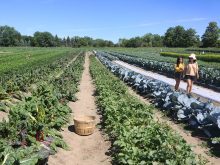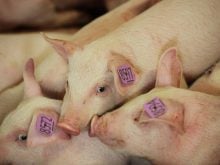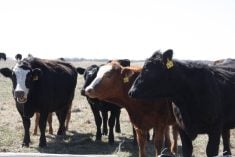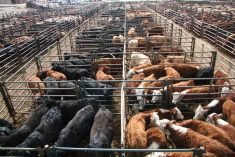Pat Ramsey has two words of advice for cattle producers shopping for hay and straw this winter – buyer beware.
The beef specialist with Alberta Agriculture said many producers in southern Alberta are running low on feed because of last year’s dry summer and fall.
“Some are fairly short and they had to go quite a ways to get it,” he said.
Most hay and straw is coming from central and northern Alberta, but quality is sometimes questionable due to rain damage and high moisture content in the hay.
Read Also
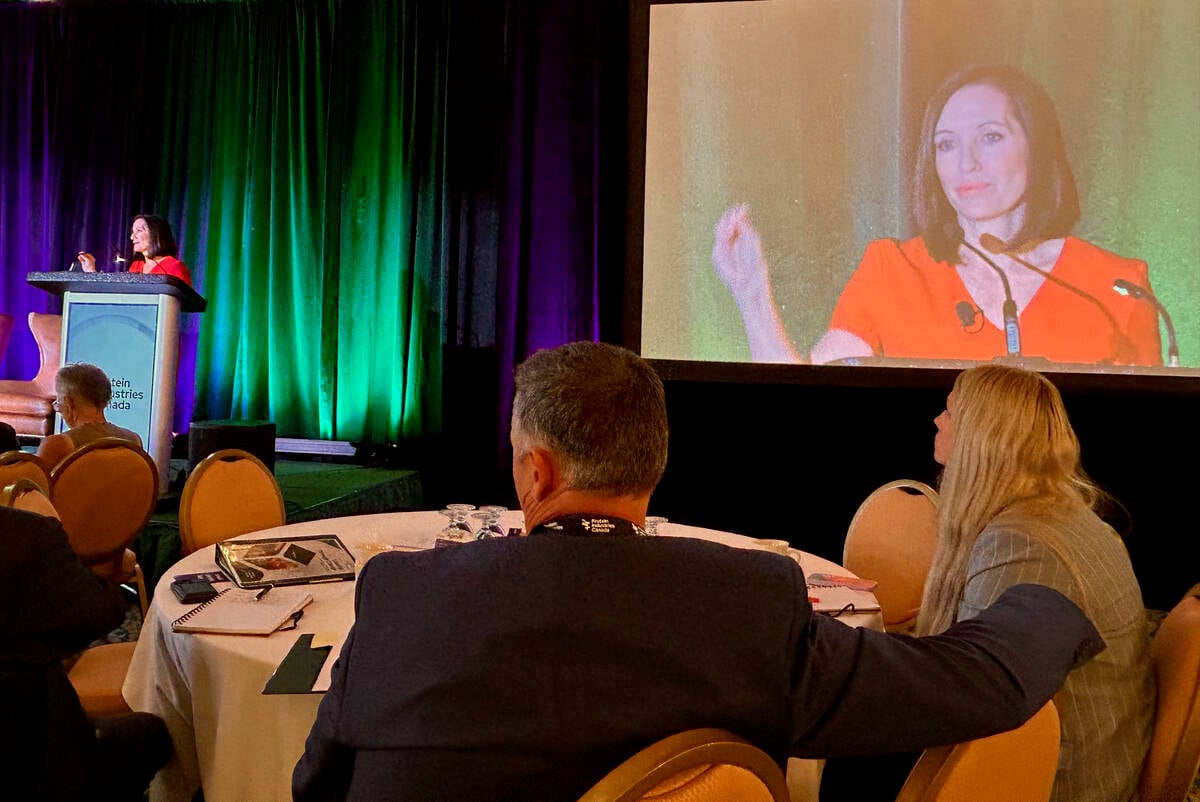
Canada told trade crisis solutions in its hands
Canadians and Canadian exporters need to accept that the old rules of trade are over, and open access to the U.S. market may also be over, says the chief financial correspondent for CTV News.
Feed tests may show that nutrient quality is adequate, but the inside of the bale could be contaminated with mould.
Ramsey said between 10 and 20 percent mould is acceptable in a forage, but feeding mouldy hay to cattle can cause abortions and allergic reactions.
While mould tests are expensive, Ramsey said buyers should try to have a look at the hay before buying.
Orville Yanke of Medicine Hat, Alta., has hay for sale but few takers. He suspects producers are more worried about low water supplies than buying winter feed.
“They may not want to put money out if they don’t have water,” he said.
Dugouts are exceptionally low and traditional water holes on grazing land are dry unless supplied by a spring.
Alberta Agriculture forage specialist Bjorn Berg said hay is moving into southern Alberta, but no one has a firm handle on supplies.





